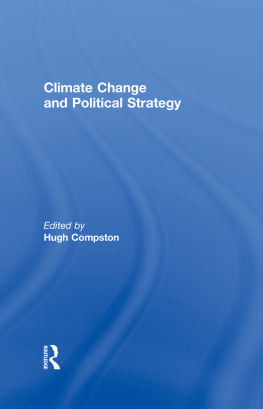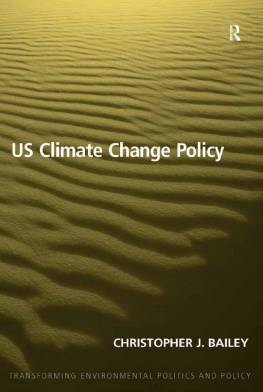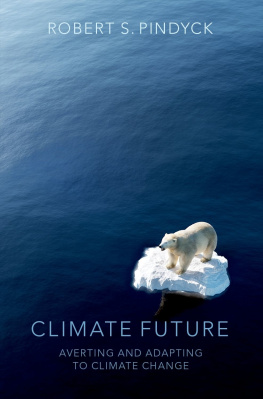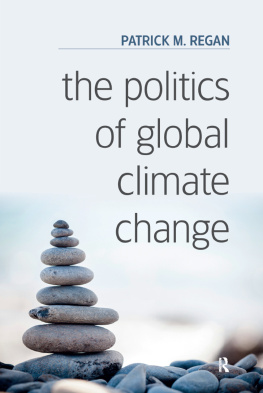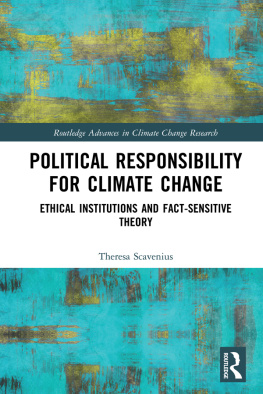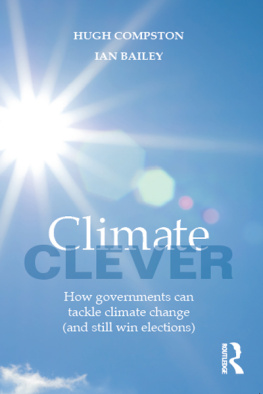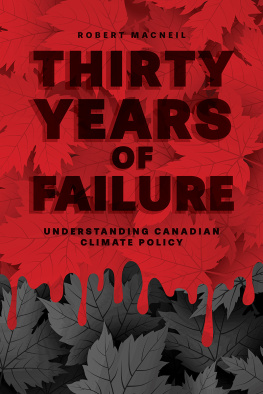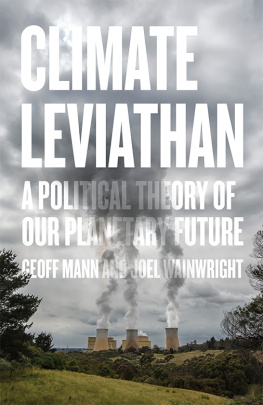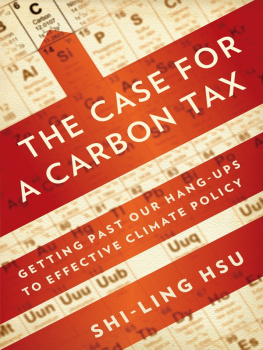Climate Change and Political Strategy
Although the science of climate change is well-established and there are well-known policy instruments that could significantly reduce greenhouse gas (GHG) emissions without prohibitive economic costs, political obstacles to more determined action remain despite heightened concern among mainstream politicians and the public. This book analyses the political dynamics of climate policy in affluent democracies from a number of different theoretical angles in order to improve our understanding of which political strategies would be likely to enable national governments to make deep cuts in GHG emissions while avoiding significant political damage.
This book was previously published as a special issue of Environmental Politics.
Hugh Compston is Reader in Politics in the School of European Studies at Cardiff University, UK. Major publications include Policy Networks and Policy Change (Palgrave, 2009), King Trends and the Future of Public Policy (Palgrave, 2006), Handbook of Public Policy in Europe: Britain, France and Germany (edited, Palgrave, 2004), Social Partnership in the European Union (edited with Justin Greenwood, Palgrave, 2001), Policy Concertation and Social Partnership (edited with Stefan Berger, Berghahn, 2002), and The New Politics of Unemployment (edited, Routledge, 1996) as well as numerous journal articles on public policy and political economy.
First published 2010
by Routledge
2 Park Square, Milton Park, Abingdon, Oxon, OX14 4RN
Simultaneously published in the USA and Canada
by Routledge
711 Third Avenue, New York, NY 10017
Routledge is an imprint of the Taylor & Francis Group, an informa business
2010 Taylor & Francis
Typeset in Times by Value Chain, India
All rights reserved. No part of this book may be reprinted or reproduced or utilised in any form or by any electronic, mechanical, or other means, now known or hereafter invented, including photocopying and recording, or in any information storage or retrieval system, without permission in writing from the publishers.
British Library Cataloguing in Publication Data
A catalogue record for this book is available from the British Library
ISBN10: 0-415-45870-6
ISBN13: 978-0-415-45870-2
Ian Bartle is the author of numerous publications in the areas of energy and telecommunications policy, risk and regulation. His most recent publication is Risk and the Regulatory State: A Better Regulation Perspective (with Peter Vass), Centre for the Study of Regulated Industries Report No. 20 (University of Bath, 2008).
Catherine Butler is a Research Associate at the School of Psychology, Cardiff University, UK. Her publications include Public Understanding of Climate Change and the Media (with Nick Pidgeon), in T. Boyce and J. Lewis (eds.), Climate Change and the Media (Peter Lang, 2009), and Risk and the Future: Floods in a Changing Climate, 21st Century Society 3(2) (2009).
Hugh Compston is a Reader in Politics at the Cardiff School of European Studies, Cardiff University, UK. Publications include Policy Networks and Policy Change (Palgrave, 2009), Turning Down the Heat: The Politics of Climate Policy in Affluent Democracies (ed. with Ian Bailey) (Palgrave, 2008), and King Trends and the Future of Public Policy (Palgrave, 2006).
Amy Fletcher is a Senior Lecturer in Political Science at the University of Canterbury, New Zealand. Her publications include Mendels Ark: Conservation Genetics and the Future of Extinction, Review of Policy Research 25(6) (2008), and Governing DNA, in H. Gottweis and A. Petersen (eds.), Biobanks: Governance in Comparative Perspective (Routledge, 2008).
Neil Gavin is a Senior Lecturer in the School of Politics and Communication Studies, University of Liverpool, UK. His publications include Press and Television in British Politics (Palgrave, 2007), and contributions to T. Boyce (ed.), Climate Change and the Media (Peter Lang, 2009), and A. Charles (ed.), Media in the Enlarged Europe (Intellect, 2009).
Frank Grundig is a Lecturer in International Relations in the School of Politics and International Relations at the University of Kent, UK, and has published widely on the logic of international climate change negotiations.
Nick Pidgeon is Professor and Director of the Understanding Risk Research Group in the School of Psychology at Cardiff University, UK. Recent publications include The Social Amplification of Risk (edited with Roger Kasperson and Paul Slovic) (Cambridge, 2003) and The GM Debate: Risk Politics and Public Engagement (with 6 others) (2007, Routledge).
Sarah Pralle is an Associate Professor in the Department of Political Science at the Maxwell School at Syracuse University, USA. Her publications include Branching Out, Digging In: Environmental Advocacy and Agenda-setting (Georgetown University Press, 2006) and Im Changing the Climate, Ask Me How!: The Politics of the Anti-SUV Campaign, Political Science Quarterly 121(3) (2006).
Ivan Scrase is a Research Fellow at SPRU - Science and Technology Policy Research, University of Sussex, UK. Publications include Energy for the Future - A New Agenda (ed. with G. MacKerron) (Palgrave, 2009) and CCS in the UK: Squaring Coal Use with Climate Change? in J. Meadowcroft and O. Langhelle (eds.), Caching the Carbon (Edward Elgar, 2009).
Adrian Smith is a Senior Research Fellow at SPRU - Science and Technology Policy Research, University of Sussex, UK, and has published widely on socio-technical transitions management.
Hugh Compston
This volume is based on the premise that the principal obstacles to stronger action on climate change are political in nature. The science of climate change is well-established (IPCC 2007a) and there are well-known policy instruments that could significantly reduce greenhouse gas emissions without prohibitive economic costs (Stern 2007), yet governments and other political authorities are reluctant to take decisive action even though most appear to be convinced that strong measures are needed. At present the main political strategy seems to be the implementation of measures that target a broad range of emissions sources while not antagonising business groups or electorates. Typical policies include setting emissions targets, encouraging promising technologies, using market mechanisms such as taxes and emissions trading to spur innovation, and urging greater international cooperation on climate policy. So far, however, such measures have failed to reverse the steady rise in atmospheric concentrations of greenhouse gases (GHGs) such as carbon dioxide (IPCC 2007b, p. 4, Tans 2009).
Clearly more needs to be done. But how can governments move beyond existing policies without risking serious political damage? The aim of this volume is to contribute to answering this question by analysing the nature of climate politics from a number of different theoretical angles in order to improve our understanding of which political strategies would be likely to help national governments to make deep cuts in GHG emissions while avoiding significant political damage.

